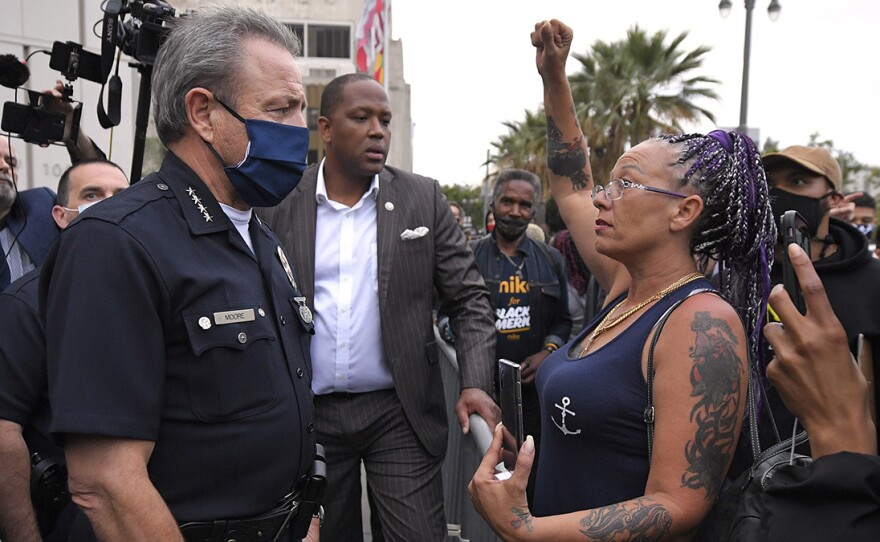Unarmed social workers instead of police would respond to nonviolent calls for service under a proposal Tuesday from several City Council members following nationwide calls for law enforcement reforms in the wake of George Floyd's killing.
A motion signed by six of the council's 15 members would use teams of trained city, county and community-based professionals, such as homeless outreach workers, to handle certain emergency situations, such as mental health crises and substance abuse calls.
The motion calls for city departments to work with the Police Department, Los Angeles Homeless Services Authority and county agencies to develop an “unarmed model of crisis response" for nonviolent calls now handled by the LAPD.
The motion referenced a program in Eugene, Oregon, that uses crisis intervention workers instead of police to handle certain calls, including family disputes.
Other cities also are mulling such programs. San Francisco Mayor London Breed announced last week that officers will stop responding to reports such as disputes between neighbors, reports about homeless people and school discipline interventions.
Sacramento Mayor Darrell Steinberg on Monday proposed having the capital city over the next two years create a new civilian department to answer such calls instead of having police respond.
On Monday, Albuquerque, New Mexico, Mayor Tim Keller said he wants to create a new city department to provide another option besides dispatching police or firefighters and paramedics whenever someone calls 911. The department would be made up of social workers and other civilian professionals who would focus on violence prevention, mental health and homelessness, for example.
Curren Price, a co-author of the Los Angeles motion, said city officials are paying attention to “the rumbling in the streets" demanding reform.
Unarmed service providers may be a better fit “in instances when having a weapon present would only escalate a situation," Price said.
“It’s unfair to ask officers to do the job of a social or public health worker, and it’s wrong to perpetuate the criminalization of homelessness and mental illness,” said Councilman Bob Blumenfield, another signer.
The Los Angeles Police Protective League, which represents more than 9,000 of the LAPD’s 13,000 employees, has been “talking about this for a long time, and I’m glad that it’s being talked about more robustly now,” said Robert Harris, the union’s director, according to the Daily News of Los Angeles.
“For these calls that don’t necessarily need a law enforcement response, can we shift that response to somebody else?” Harris said.
The death of Floyd in Minneapolis after a police officer pressed a knee to his neck has sparked international protests and calls to reform police agencies, including reducing funding or even eliminating departments.
Activists have pushed a “People's Budget" with drastic cuts to the LAPD's nearly $2 billion budget with the money going instead to community services and housing. On Tuesday, the City Council voted to look into cutting up to $150 million from the budget and using it in community programs.
Protesters “have asked us to re-imagine public safety in the 21st century, and that is what we are doing,” said Councilman Herb Wesson, who also signed the motion to split off police duties.






